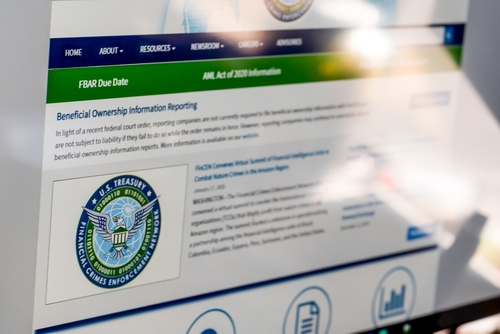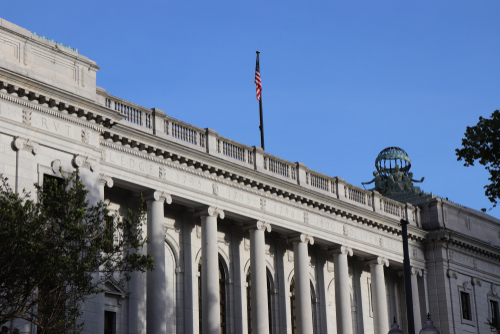
Dear Clients and Friends,
Over the first few months of 2024 there have been many developments in global trade controls. We have compiled highlights of regulatory updates, publications, and global and local enforcement events in the field of international trade regulation since the beginning of 2024 that may affect compliance requirements for companies in Israel and abroad.
Global Regulatory Updates
- Expanded US, UK, and EU Sanctions against Russia: In marking two years since the beginning of Russia’s war on Ukraine and in response to the death of Aleksey Navalny, on February 22-23, 2024, the US, UK, and EU expanded their sanctions regime and export controls related to Russia.
- The US Treasury Department’s Office of Foreign Assets Control (OFAC), together with the US State Department, added over 500 entities to OFAC’s List of Specially Designated Nationals and Blocked Persons (SDN List). The US Department of Commerce Bureau of Industry and Security (BIS) added some 90 entities to their Entity List.
- The UK added an additional 50 sanctions targeting entities assisting in Russia’s war efforts and key Russian revenue sources.
- The EU adopted its 13th sanctions package against Russia, announcing sanctions against some 200 entities and imposing additional import-export controls and restrictions on some 30 new entities. The EU also published guidance and a template for the “no re-export to Russia” clause. The restriction aims to combat goods being re-exported from a third country into Russia and obligates certain EU exporters to include a clause to that effect in contracts with non-EU operators.
The US, UK, and EU, also added five additional items to the Common High Priority List, a list which marks items of heightened risk of diversion due to their importance to Russia’s war efforts.
- US Releases Risk Advisory for Doing Business in Russia: On February 23, 2024, the US State Department released a business advisory entitled “Risks and Considerations for Doing Business in the Russian Federation and Russia-Occupied Territories of Ukraine”. The advisory notes a number of risks implicit in conducting business activities in Russia, including (1) risks associated with exposure to “sanctions, export controls, import restrictions, money laundering vulnerabilities and corruption”, (2) risks associated with being implicated in “Russia’s violation of international law, including war crimes, crimes against humanity, and human rights abuse”, and (3) risks associated with “the proliferation and implementation of repressive laws” in Russia, including expropriation of private property and arbitrary detention. The advisory also warns that persons who conduct transaction with designated entities may themselves be exposed to designation. Similarly, while the advisory recommends for businesses and individuals operating in Russia to conduct rigorous and heightened due diligence processes, even after conducting such due diligence processes, it indicates that substantial risks are still likely to remain.
- Restrictions on Diamonds of Russian Origin: In December 2023, building on previous statements and measures, G7 leaders agreed to introduce a coordinated diamond ban against diamonds of Russian origin as a means of reducing Russia’s revenue stream used to fund its war. Since then, during 2024 import restrictions on certain categories of Russian diamonds have been imposed or expanded in the US, EU, UK, Canada, and other jurisdictions.
- US Compliance Note addressing Foreign-Based Persons’ Sanctions and Export Control Compliance Obligations: On March 6, 2024, the Department of Commerce, Department of the Treasury, and Department of Justice, issued a Tri-Seal Compliance Note entitled the “Obligations of foreign-based persons to comply with US sanctions and export control laws”. The note outlines the numerous ways in which compliance obligations are applicable to foreign persons, references examples of enforcement actions taken against foreign persons, and notes general considerations and recommendations for foreign persons crafting compliance mechanisms. The letter addressed to a foreign audience continues a trend that indicates the US’s intention to shift focus to foreign persons’ compliance and signals the regulator’s readiness to take enforcement actions against compliance violations by foreign persons and entities.
- US Creates Automatic Application of Stringent Export Controls to Individuals and Entities under Certain Sanctions Programs: On March 20, 2023, the US Department of Commerce Bureau of Industry and Security (BIS) issued a new rule which ensures that persons and entities blocked under fourteen of OFAC’s sanctions programs will also be automatically subject to stringent US export controls. Of the fourteen sanctions programs upon which the rule applies, seven of them are Russia-related sanctions. The rule allows Commerce authorities to complement OFAC’s blocking measures targeting financial dealings, especially for transactions that involve items subject to the EAR but that do not involve U.S. persons.
- Continuing Improvements to BIS Voluntary Self-Disclosure Process: On January 16, 2024, The US Department of Commerce Bureau of Industry and Security (BIS) released a memorandum regarding a series of enhancements intended to expedite and simplify its Voluntary Self-Disclosure (VSD) process. These enhancements continue others made in the past, including the introduction of a confidential reporting form to incentivize disclosures regarding the conduct of others, as well as a change of policy which makes deliberate non-disclosure of a significant possible EAR violation an aggravating factor when determining a penalty.
- US Sanctions Commercial Spyware Company: The US has sanctioned a commercial spyware company continuing its stance which maintains that the US has “a fundamental national security and foreign policy interest in countering and preventing the proliferation of commercial spyware that has been or risks being misused…”. On March 5, 2024, the US Treasury Department’s Office of Foreign Assets Control (OFAC) designated a number of individuals and entities associated with Intellexa for their role in “developing, operating, and distributing commercial spyware technology”. The designated individuals and entities were added to OFAC’s List of Specially Designated Nationals and Blocked Persons (SDN List).
- US Creates New “West Bank-Related Sanctions” Framework: On February 1, 2024, the US announced a new sanctions framework for “West Bank-Related Sanctions”. The US has since imposed sanctions on two separate occasions against a total of seven Israelis and two entities in Israel, due to their involvement in activities that “undermine peace, security, and stability in the West Bank”. The individuals and entities were added to OFAC’s List of Specially Designated Nationals and Blocked Persons (SDN List). The new sanctions framework creates a new mechanism through which the US can place sanctions and secondary sanctions in the region.
Proposed Regulations
- US Regulation to Prevent Access to Sensitive Data by Countries of Concern: On February 28, 2024, the US published “Executive Order on Preventing Access to Americans’ Bulk Sensitive Personal Data and United States Government-Related Data by Countries of Concern”, aimed at addressing the national security and foreign policy concerns in certain countries’ access to American data. While at the moment only an advance notice of proposed rulemaking has been issued and no final rule has been adopted, the executive order is set to apply to a wide range of categories of data (personal identifiers, geolocation, biometric identifiers, personal financial data, and more), be triggered by a relatively low thresholds of data, and with regards to the following countries of concern: China, Russia, Iran, North Korea, Venezuela, and Cuba.
- US Reporting Requirements to be Placed on US Cloud Service Providers: On January 29, 2024, the US Department of Commerce Bureau of Industry and Security (BIS) published a proposed rule placing reporting requirements on US cloud services to address “the risk of foreign malicious actors using US cloud services”. The proposed rule would obligate certain cloud service providers (IaaS) with Customer Identification Programs (CIP) and know-your-customer (KYC) requirements regarding their foreign customers. The regulation places an emphasis on the use by foreign customers of US cloud services to train large AI models.
Enforcement Updates
- Businessman Arrested for Scheme to Illegally Export Semiconductors and Other Controlled Technology to Russia – In January 2024, a US businessman with Israeli and Russian citizenship was arrested for allegedly running a years-long scheme to unlawfully export hundreds of thousands of semiconductors to a sanctioned Russian business, using networks of businesses in the China and other transshipment points to evade export controls.
- US Enforcement Action Brought against Boeing for Export Violations: On February 29, 2024, the US State Department released a notice about a $51 million administrative settlement reached with Boeing regarding the company’s export violations under the Arms Export Control Act (AECA) and the International Traffic in Arms Regulation (ITAR). Boeing’s violations included unauthorized exports and retransfers of technical data to foreign-person employees and contractors, as well as unauthorized exports of controlled technical data within Israel.
Updates in Israel
Israeli Bank Appeals Court Decision to Transfer Donation from Sanctioned Individual: On December 19, 2023, Israeli bank, Mizrahi Tefahot, refused a request to transfer a donation of 8 million NIS from Mr. Roman Abramovich to Israeli humanitarian organization, ZAKA, due to the bank’s exposure to risks stemming from Abramovich being designated on EU and UK sanction lists. The parties sued the bank, requesting that the court order Mizrahi Tefahot to transfer the funds. On January 30, 2024 the Tel Aviv District Court ruled in favor of Abramovich and ordered transferring the funds, considering the humanitarian aim of the donation, and requiring the bank to adopt a more nuanced approach to sanctions compliance. The court pointed out that foreign sanctions frameworks provide a process for obtaining licenses in exceptional cases, which is not available in Israel, where the bank has adopted sanctions voluntarily. It is of note that the bank’s cited as reason for its refusal the potential broad repercussions of violating the EU and UK sanctions and transacting with officials connected with the Russian war effort, including risk of US secondary sanctions, even though Israel has not imposed any sanctions on Abramovich. The State of Israel joined the proceedings and issued a position in support of Mizrahi Tefahot, citing the potential dangers and implications of a violation of foreign sanctions for the bank and the Israeli financial system as a whole, even as the entirety of the transaction would be domestic. The matter is currently on appeal to the Supreme Court.
Our global trade compliance team is available for questions or consultations regarding the developments reviewed in this client update.
The purpose of this review is to provide an overview of certain developments in the field of international trade that can assist in meeting compliance requirements. This memorandum does not review all the developments that occurred in 2024 and is not intended to provide a comprehensive summary. This memo provides general information, and may not be relied upon in any particular situation without additional legal advice.










